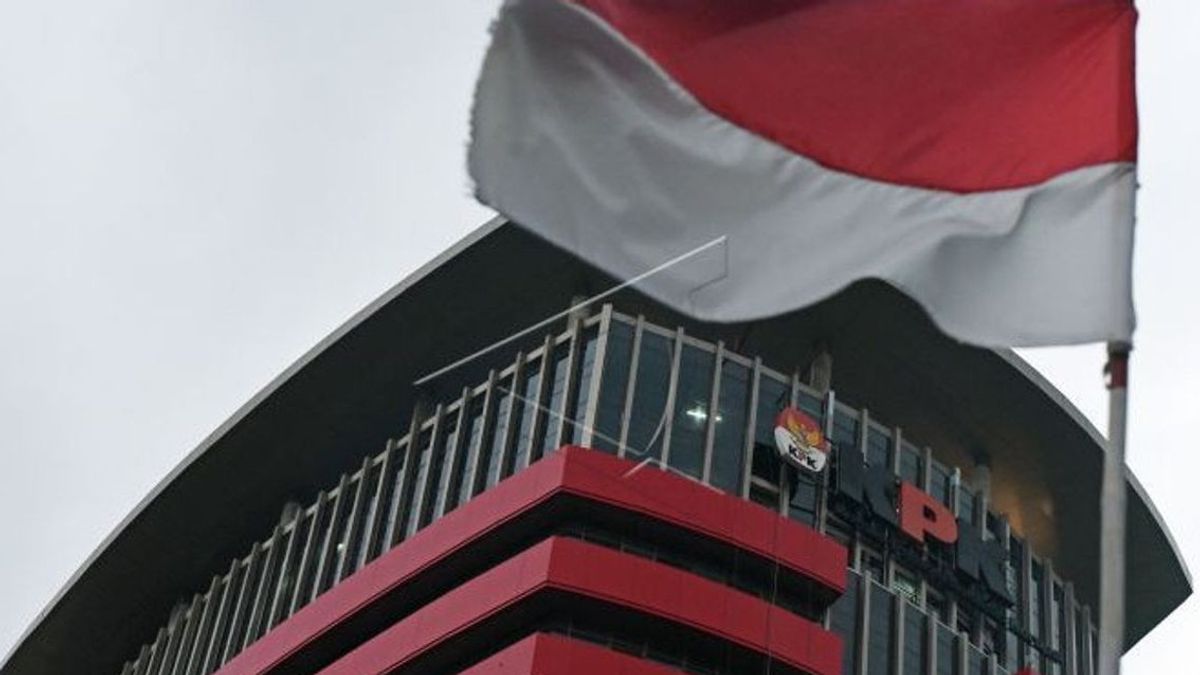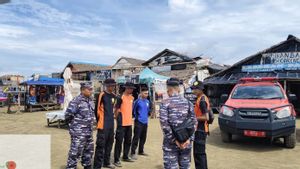JAKARTA - After the problematic national insight test (TWK) and discounted penalties for corruptors, the KPK again gave a worrying signal about eradicating corruption. Recently, the KPK referred to corruption convicts as "survivors." The KPK also plans to make them anti-corruption instructors. More of a logic flaw. This is a normalization of corrupt behavior that may still be part of a structured crime.
The term "corruption survivor" was said by the Corruption Eradication Commission's (KPK) Deputy for Education and Community Participation, Wawan Wardiana. At that time, on March 31, Wawan together with the KPK conducted anti-corruption counseling for assimilated inmates at Sukamiskin Prison, Bandung, West Java.
"Those who become 'survivors' of corruption may be able to tell more detailed stories based on their experiences so they are not imitated by others, tell the impact that has been caused so that they can inspire the public or state officials not to be corrupt," Wawan said at the time.
Wawan's statement was widely criticized by anti-corruption activists and activists. A non-active KPK employee, Novel Baswedan, for example. He strongly criticized the term corruption survivor from Wawan's mouth. The behavior of the KPK leadership is strange and outrageous, according to Novel.
"Do you not understand or don't care about corruption when you call corruptors as survivors (victims). Then who is the culprit? The state?" chirping Novel on his Twitter account, @nazaqistsha, Sunday, August 22.
In addition to naming former corrupt convicts as survivors, the KPK also plans to recruit them to strengthen prevention programs. The former corrupt convicts will later be used as anti-corruption counselors. The same statement from Wawan.

He explained that the former corrupt convicts who will be selected will be those who have good behavior and have almost completed their prison term in prisons. Later the ex-corruption convicts will become anti-corruption agents who carry out socialization about corruption and teach the public about the impact of corruption.
"So it should also be explained that the first activity is socialization, socialization to those selective prisoners who actually have two more years to go out, there are a few more months to go out, yes, indeed, they have served their sentences, it's just a matter of time," Wawan said in a statement. an event broadcast on the KPK RI YouTube, Friday, August 20.
"In the end, we really hope that they can at least provide testimonials that we will use as lessons for state officials or the public that 'this is what happens when people commit corruption, live life in prison, and so on,'" explained Wawan.
Acting KPK Spokesperson for Prevention, Ipi Maryati, straightened Wawan's statement, which received criticism. According to him, ex-corruption convicts will not be used as extension agents but will only be given space to convey testimony about their experiences as corruptors. The goal, is the same, to teach the public to stay away from corruption.
"They do not automatically become anti-corruption counselors, but these inmates will be asked to give testimony about their experiences during the legal process, both the impact on themselves, their families, and in their social life," Ipi told reporters, quoted on Monday, August 23.
Watch out! Structured crime
Coordinator of Indonesia Corruption Watch (ICW), Adnan Topan invites everyone to focus on these two issues: corruption survivors and anti-corruption counselors. This is a serious problem. What the KPK is doing may be an attempt to normalize corrupt behavior.
And the possibility that this is part of a structured crime is very open. This corruption survivor and anti-corruption counselor seems to be dealing with efforts and investments in anti-corruption education that have been going on for quite a while at the community level.
"The public will see that what they get from anti-corruption education is not in line with government policies. So why should they be anti-corruption? Now when it comes to the level of justification for all behavior and actions, yes, it is increasingly difficult for us to get out of the puddle of corruption," said Adnan. to VOI, Tuesday, August 24.
The anti-corruption ecosystem in Indonesia is immature. And the KPK disrupts the pace of the formation of the ecosystem. And again, this is dangerous. As Adnan said, corruption is decay. In the long run, the country can run into problems of division. Such is the impact of corruption. It's so massive. Is it not without reason that corruption is categorized as an extraordinary crime?
"The problem is, corruption in many studies is one of the factors of failed countries. Failed countries take various forms, including countries that are divided randomly because there is no longer social cohesion, considering that each other no longer trusts each other."
"We are stuck in a prisoner dilemma. One of the triggers for why the regions demand independence is because of inequality in welfare issues. And this is contributed by endemic corruption."
Dangers of normalizing corruption
Imagine, one day we will see corruptors like Juliari Batubara being released from their proper punishment. And worse, there is no feeling of lump in our chest. It was as if what Juliari and his fellow corruptors were doing was normal.
A study entitled Normalization of Corruption: Psychological Review, written by M. Untung Manara from the Faculty of Psychology, Universitas Merdeka Malang examines psychological theories related to group attitudes and behavior in viewing corruption.
This study finds the flow of the normalization process of corruption in an organizational group. The process begins with cognitive dissonance, followed by rationalization, moral disengagement, until finally normalizing or in a condition of divergent norms.
Basically, we generally see corruption as a social pathology or the actions of individuals or groups that deviate from social norms. Individuals who are raised with generally accepted social norms will automatically see corruption as a negative thing.
But that can change with 'tricked' social, cultural and even legal interventions. The discrepancy between norms and behavior will lead to symptoms of cognitive dissonance, the first symptom experienced by a person in the normalization stage of corrupt behavior itself.
"A corruptor when he first takes this action will certainly experience these symptoms. Cognitive dissonance is a condition that causes discomfort. If this situation continues to drag on, it will cause clinical symptoms, such as stress to depression," the study said.
"But individuals who are driven by the homeostatic motive are always looking for ways to return the discomfort experienced to a stable and comfortable state." There are at least two ways that individuals can do to relieve the discomfort.

First, changing the negative view of corruption to match corrupt behavior or vice versa, changing corrupt behavior to match the view that corruption is a negative thing. "Unfortunately what often happens to most perpetrators of corruption is the first way."
When a perpetrator of corruption chooses the first option above, then he has entered the second phase of normalization of corruption, namely rationalization. Rationalization is a human self-defense mechanism when experiencing psychological stress. He rationalizes his actions to make them acceptable. He will also assume that what he is doing is the right thing to do.
The third stage, moral disengagement. At this stage the individual who commits corruption no longer feels guilty. The next stage occurs at the organizational or group level, namely normalization or divergent norms.
At the group level, individuals within the organization 'reinforce' the corrupt actions they commit. This attitude will form a new norm in which individuals in the group will change their perspective on corruption. From negative to normal.
"This (KPK) is not only normalizing corruption but glorifying corruptors," said ICW Coordinator Adnan Topan to VOI, Tuesday, August 24.
*Read other information about CORRUPTION or other interesting articles from Wardhany Tsa Tsia and Yudhistira Mahabharata.
Other BERNASThe English, Chinese, Japanese, Arabic, and French versions are automatically generated by the AI. So there may still be inaccuracies in translating, please always see Indonesian as our main language. (system supported by DigitalSiber.id)









